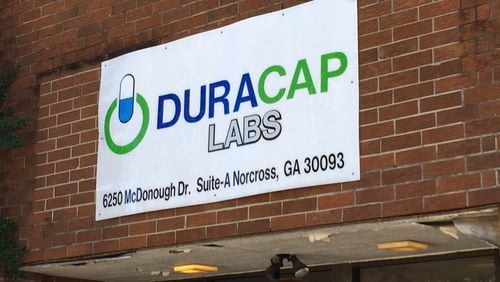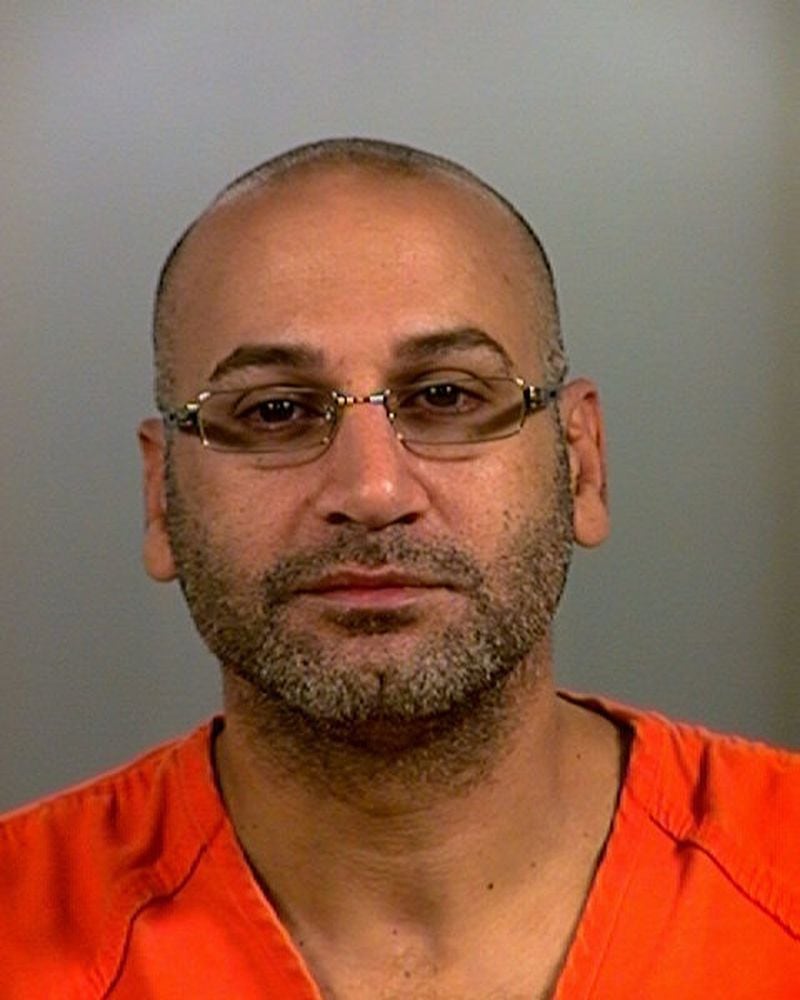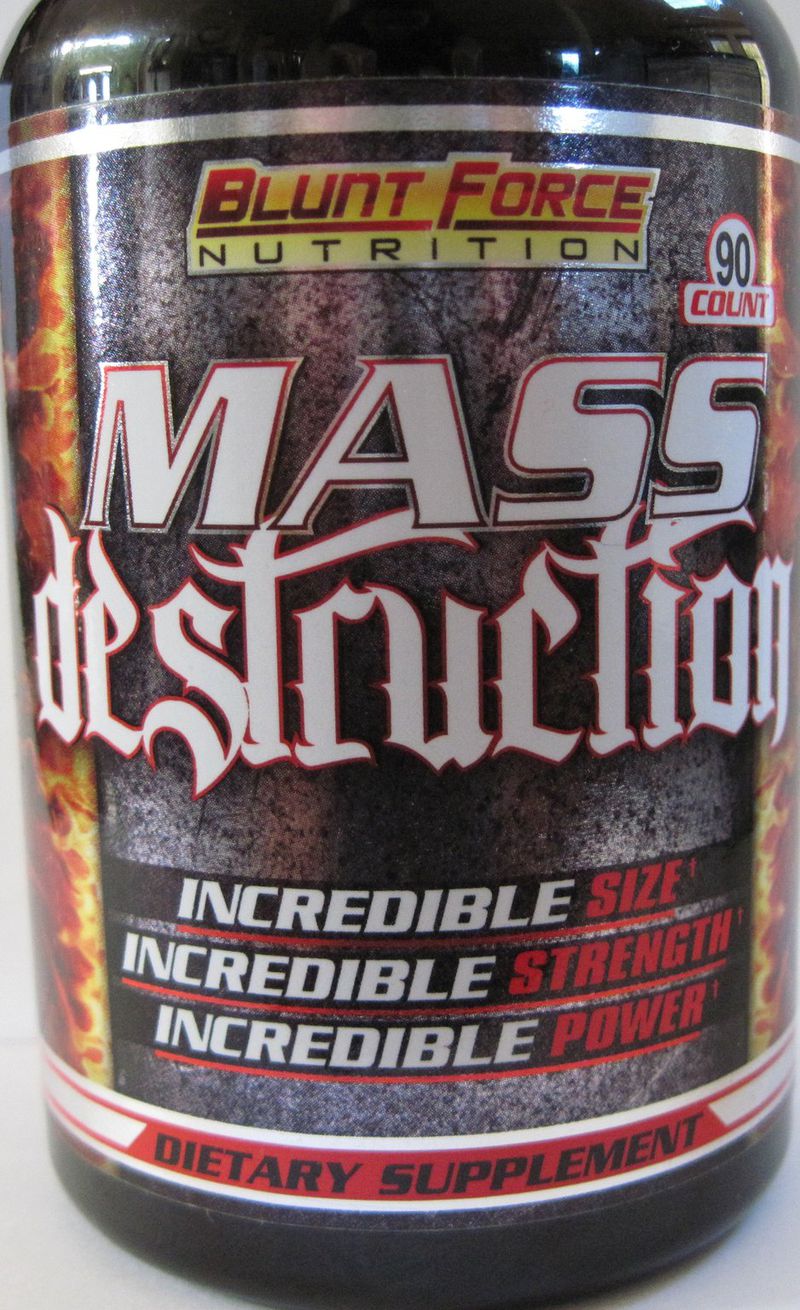An Atlanta man already under criminal indictment for making supplements spiked with steroids is facing new charges that he and his wife smuggled steroids and other dangerous substances into the U.S.
In the scheme, more than 50 kilograms of so-called designer steroids were hidden under legitimate compounds shipped from China, according to a federal indictment that supersedes one handed down in 2016. The stimulant DMAA also was smuggled, the indictment alleges.
The superseding indictment expands a case in which Beny Mesika and a former business partner, Wes Houser, were charged with manufacturing and distributing body-building supplements spiked with the steroid Methasterone, including one product that allegedly caused a 28-year-old North Carolina man to suffer acute liver failure and undergo an organ transplant.
In addition to the smuggling charges, the new indictment contends that Mesika and and his wife, Elizabeth Kuecher, manufactured and distributed other supplements spiked with Methasterone and sought to hide their activities by leasing a variety of facilities that were never registered with the U.S. Food and Drug Administration.
Houser pleaded guilty last April to a single count of conspiracy and agreed to cooperate with the government. He has yet to be sentenced and is named in the latest charges only as an unindicted co-conspirator.
Mesika’s attorney, Bruce Harvey, did not respond to a request for comment. Last April, he told the The Atlanta Journal-Constitution that his client had done nothing illegal and added that he was prepared to challenge statements Houser “made to save himself.”
Kuecher’s attorney, Kimberly Cornwell, also did not respond to a request for comment.
Anabolic steroids are Schedule III controlled substances and cannot be obtained without a prescription. Designer steroids, sometimes referred to as prohormones, are similar compounds that have been slightly modified to allow athletes to beat drug tests. The raw materials are typically made in China and processed into capsules in the U.S.
Increasingly, the U.S. Drug Enforcement Administration has sought to have designer steroids classified as controlled substances. In the case of Methasterone, also known as Superdrol, it became publicly known as a designer steroid in 2005 and was classified as a controlled substance in 2012.
In the superseding indictment, handed down in December, the government alleges that Mesika and Kuecher along with unnamed individuals smuggled five different designer steroids into the U.S. on three occasions between August 2014 and February 2015. According to the indictment, the shipments included 30 kilos of DMZ, a substance chemically similar to Methasterone.
The superseding indictment also contends that the couple smuggled 100 kilos of DMAA, an amphetamine-like substance that the FDA has said doesn't fit the legal definition of a supplement as a vitamin, mineral, herbal or botanical ingredient. DMAA has been linked to dozens of serious health problems, including heart attacks and strokes.
The indictment cites a series of emails that purportedly support the charges. One, from an “overseas supplier” to Houser, indicated that steroids and other “non-dietary ingredients” would be shipped at the bottom of drums covered with amino acids and other FDA-compliant substances.
Under federal law, smuggling can be defined as knowingly attempting to bring merchandise into the U.S. through fraudulent means. It can be punished by up to 20 years in prison.
Mesika, born in Israel and raised in New York City, and Houser, the son of an Atlanta physician, went into business together in 2012, forming a series of companies in various locations across metro Atlanta. Their best-known company, DuraCap Labs, occupied a 10,000-square-foot facility in Norcross.
They quickly amassed millions and used the money to buy sports cars and real estate that federal authorities now contend are subject to forfeiture. One of the properties is Mesika and Kuecher’s residence, a 9,722-square-foot riverfront mansion in Sandy Springs purchased for $1.9 million in 2015.
In prosecuting Mesika and Houser, federal authorities made the rare assertion that one of their Methasterone-spiked products resulted in “serious bodily injury and death,” and they have restated the claim in the superseding indictment. The indictment does not identify who was harmed or how.
But the AJC has reported that the claim on bodily injury apparently refers to the case of Marcus Joyner, a resident of Wilson, N.C., who required a liver transplant two months after using a supplement known as Mass Destruction as part of a fitness program in October 2013.
Joyner began experiencing symptoms that included dark urine, abdominal pain, jaundice and dizziness three or four weeks after using the product, according to adverse event reports filed with the FDA. He later was diagnosed with acute liver failure at Duke University Medical Center, where he underwent the transplant.
A lawsuit in which Joyner contends that Mesika, Houser and others are responsible for his condition has been stayed until the criminal case is completed and the government has determined what restitution is due victims.
So-called natural products can cause serious health problems if they are spiked with prescription drugs or illegal substances. AJC investigative reporter Danny Robbins has written extensively on Georgia companies accused of selling these dangerous products. Read more about the issue:









